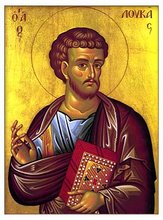Saturday 29 December 2007
More on Being a Burdon
Many patients who voice this kind concern with being a "burden" are, in my view, suffering from depression and I am quick to recommend these patients for consultation for depression.
However many are really saying that they do not want to suffer. They do not want to suffer loneliness or suffer dependence on others for their needs. They may fear physical pain.
It may be difficult, but if I know a patient is Catholic (and I will inquire about my patients' faith when they voice such a comment) it is useful to remind them that they can unite their suffering with that of Christ and share in His redemptive suffering. Salvifici Doloris, JPII's wonderful encyclical on suffering, is helpful in this regard (and well worth re-reading occasionally.)
I will generally also discuss why it may be important for the patient to "allow" the family to care for them. How this submission to dependency may be an opportunity to teach love to one's children and grandchildren. My mother, with her own eight children, welcomed her father and her mother-in-law into our modest home and provided to us, her children, an example of what it means to love. I am much richer because my grandparents "allowed" themselves to "burden" my mother. They were able to temper pride in order to become dependant.
I once had an old nun tell me that the engine of the Church, the spiritual energy of the Church, was the millions of old people continuously praying--praying the rosary, praying the Divine Chaplet, praying the hours, praying the daily Mass. Remind your patients that they can use this station in their life to enrich the Body of Christ through their prayers.
Wednesday 19 December 2007
On Being a Burden
Tuesday 11 December 2007
"Catholic Church must withdraw from involvement in frontline healthcare here in the UK"
Catholic moral teaching is again butting heads with human secularist in the UK. Cormac Cardinal Murphy O'Connor, head of the Catholic church in England and Wales, has insisted that Catholic hospitals (can you believe) abide by Catholic teaching in certain medical situations. From LifeSite:
Two members of the board of directors of a London Catholic hospital have resigned in the face of the hospital's decision to adopt a Catholic code of ethics. After an investigation, instigated at the request of the Vatican, it was revealed that the hospital violated Catholic moral principles by referring for abortions, dispensing contraceptives and performing sterilizations. The hospital was also suspected of carrying out the surgical and chemical mutilations known popularly as "sex-change" operations.
And of course there is no tolerance from the left where the "right" to abortion and sexual license are stake.
Last month, Dr. Scurr reiterated his stand that, because of its dedication to classical medical ethics and refusal to adopt the utilitarian pro-abortion mentality, the Church should abandon its centuries-long dedication to health care in Britain.
"As I have said repeatedly," he said, "we are now in an era where the Catholic Church must withdraw from involvement in frontline healthcare here in the UK, as it appears to be unable to reach the degree of tolerance that has been reached elsewhere in the world."
Saying the adoption of the Catholic ethics code placed "Catholic values" above patient care, Scurr said, "In the matter of modern medical care the cardinal has chosen to listen to individuals who have no specific expertise in that arena. The damage to the church will be worse if the hospital closes, unless he chooses to withdraw his patronage."
Expect increasing pressure from secularists against Catholic social institutions that refuse to cooperate with the secularist agenda. Case in point; the Boston Archdiocese has opted out of providing adoptive services because they refuse to place children in homes of homosexual couples.
The intolerance of the left is staggering.
Thursday 6 December 2007
Vaccines and the Catholic Physician
Information on what the Church teaches about the morally acceptable use of vaccines produced in descendant cells can be found here.


